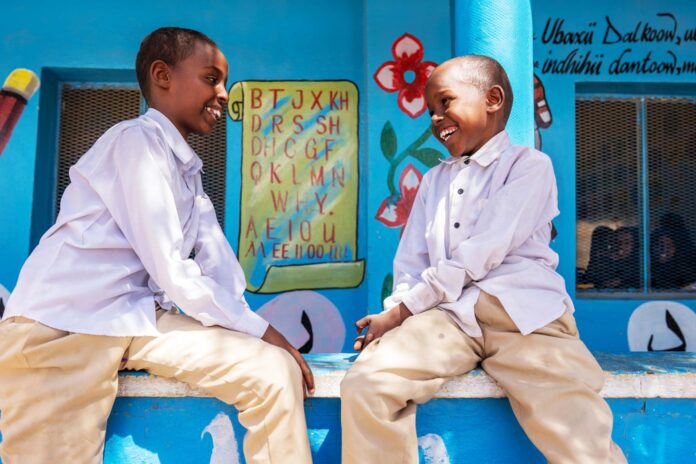Local governments play a crucial role in providing essential services to children. In both urban and rural surroundings, they can connect girls and boys to nutritious food, clean water, quality education, sanitation, and other services that prevent them from falling into poverty.
In Somaliland, through the UN Joint Programme on Local Governance (JPLG), UNICEF has, since 2014, bolstered the capacity of eight targeted districts on service delivery through a model based on social accountability and civic engagement. This has strengthened local ownership and many of the districts have increased their investment in education and health services from local revenues.
“For the first time, we have been empowered to take action and help our own people. I’ve witnessed how critical it is to invest in providing light and water to health centers. With power and clean water, women can deliver safely. It means that with our own inputs, and our partners’ support, we can save lives,” said Khader Yusuf Ali, Director of Social Affairs, Hargeisa district. “These positive results have encouraged us to invest more in delivering social services and in the future I’m hopeful we can take over the health facilities and run them,” he noted.
From the onset of the COVID-19 pandemic, district officials have worked together with UNICEF and other JPLG partners to slow the spread of COVID-19 and minimize impacts of the outbreak on children and their families. Critical water and sanitation facilities were set up, and hygiene supplies and protective equipment were distributed to the most vulnerable communities. Key health and nutrition services continued, vital public health messaging and advice were disseminated, and school officials were supported in reopening schools safely.
“The local governments in Somaliland have been able to play a key role in preventing the spread of COVID-19, thanks to the JPLG support,” said Saleban Haddi, the Mayor of Boroma. “The availability of COVID -19 protection materials and improved sanitation, together with our own district contributions, helped to ensure the continuity of the services at the health centers and primary schools during this critical time,” he explained.
“When we increased the involvement of local authorities, it helped them to see the important role they can play at the district level. We’ve also seen community participation increase with active community members setting up committees to fill in the gap between the community and the local authorities,” elaborated Abdirahman Mohamed Idle, Programme Officer at UNICEF Somalia. “During the COVID-19 outbreak, the financial contributions from the districts and the strong ownership at local level, have helped to undertake the response activities diligently,” he added.
The joint efforts, as part of the JPLG, resulted in setting up 260 hand washing stations in public places across the 11 districts. 180 toilets and 180 handwashing spaces were established in 136 primary schools and 98 health centres. Many of these hand washing stations were set up at school gates to encourage children to wash their hands before entering or exiting the school grounds. More than 110,500 people were reached with activities aiming to raise the communities’ awareness on how to prevent the spread of COVID-19 and 92 district officials from social affairs departments, 110 nurses and 105 other staff members have been deployed to facilitate the COVID-19 response and manage the additional workload in the health centres across the districts.
JPLG is a joint UN project with five agencies – UNICEF, UNDP, UNCDP, UNHABITAT and ILO – working together to combine their expertise and resources. Its activities are executed with the generous support from the European Union and the Governments of Denmark, Norway, Sweden and Switzerland.






































